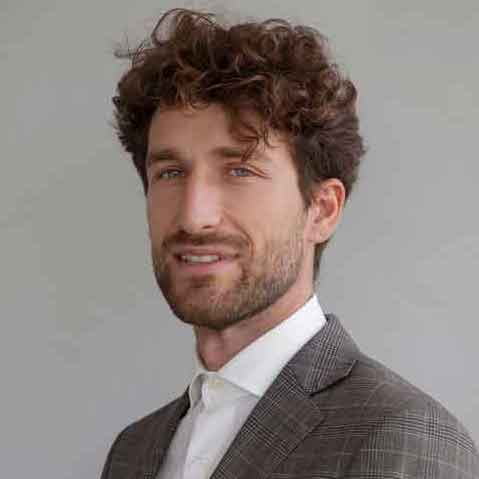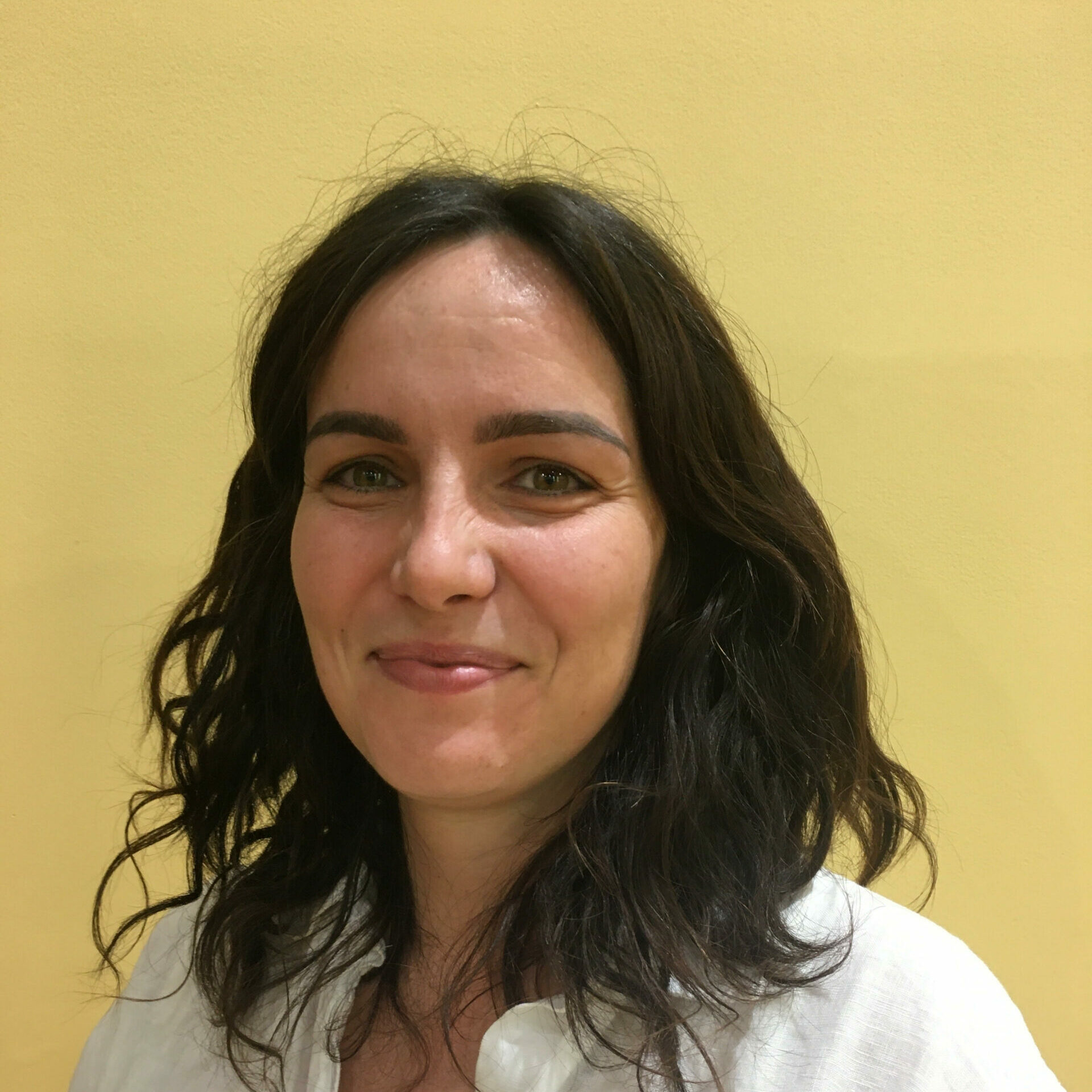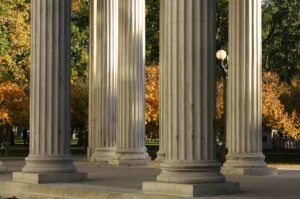Being aware of our unconscious beliefs gives us new opportunities to behave sustainably. A business scholar and a parenting coach explain.
Jury Gualandris is Director of the Network for Business Sustainability and a faculty member at Ivey Business School. Cassandra Caslini is a parenting coach.
I’ve been training business leaders for over 10 years. In the past few years, and especially this summer, some ‘ah ha’ moments left me wondering, “Are we teaching the right things?”
One ‘ah ha moment’ came this summer when my wife, Cassandra, and I took our two daughters to our home country of Italy. The climate crisis is hitting the Mediterranean region hard. While we were in Italy, temperatures hit 48 degrees Celsius or 118 degrees Fahrenheit.
Cassandra and I spent one very hot day in Milan. We walked through dense crowds of people, many carrying large bags of new clothes and other retail treasures. Despite the heat, local shops kept their doors open so consumers could enter easily. The air conditioning systems were pushed to new limits.
As we watched, we felt annoyed. How could people literally be cooking because of climate change, but still behave so unsustainably?
A second ‘ah ha moment’ came a few days later. I read a LinkedIn post from a fellow researcher. He was criticizing Canada’s recent ban on single-use plastics. His reason? He valued “individual liberty” and “the freedom to choose when, what, and how much to consume.”
I was fascinated that someone so knowledgeable could prioritize the right to consume single-use plastic over the need to pass a livable planet to future generations.
Suddenly, it hit me. The phenomenon we were seeing looked a lot like the parenting conversations I have with my wife.
How Sustainability Is Like Parenting
Stay with me here.
My wife, Cassandra, is a Parent Coach and I’m her number one client. I care deeply about our daughters and I want to parent them with intention and in alignment with my core values. Yet, Cassandra sometimes sees places where my actions don’t match my values.
For example, I recently yelled at my daughter for not picking up her toys when I asked. Cassandra pointed out that my anger wasn’t actually caused by my daughter’s actions. Instead, I was reacting because of a belief I held about what ‘good kids should do.’
You see, I grew up being told that kids should do what they’re told, when they’re told. Because the people around me believed this, I started to believe it, too. I didn’t even question it.
Fast forward 30 years. When my daughter didn’t pick up the toys when I asked, it violated my unconscious belief about how kids should behave. So, I got angry and yelled.
In academic terms, I have a “mental model” – a taken-for-granted way of operating, that might not serve my family well.
With Cassandra’s help, I’m starting to see that my original belief isn’t actually true. Children are supposed to exert their independence. It’s developmentally appropriate. Changing this belief has helped me find more constructive ways to engage with my daughters’ emerging independence.
As I thought about that day in Milan, and about my colleague’s anger over banning single-use plastic, I began to wonder: Could their feelings and behaviour also be linked to unconscious conditioning? Beliefs which may not even be true?
Are We Truly Free? Or Living on Autopilot?
Since this summer, I’ve been asking myself all sorts of questions.
For example: Are consumers truly free? To what extent is our consumption shaped by capitalist beliefs that we’ve never really challenged? Shaped by the pressure to conform to cultural definitions of success, beauty, and happiness? Shaped by aggressive, often misleading, marketing campaigns?
And, if business leaders are conditioned by the business schools they attended, are academics like me to blame? For decades, business schools have been telling business leaders to:
-
- Be competitive, faster, and smarter.
-
- Maximize profit, conforming only to the basic rules of society.
-
- Boost demand through targeted marketing and promotion.
-
- Maximize efficiency and scale without deliberate limits.
-
- Treat people and nature only as inputs to production.
Perhaps we should all be challenging these assumptions?
After all, they are not universal truths. Some cultures, such as Indigenous cultures, don’t see these ideas as being the obvious choice. And when pushed to the extreme, our capitalist beliefs hurt people and the planet.
How to Unlock Freedom and Sustainable Action
I keep thinking about how the world is experiencing record temperatures, larger-scale forest fires, and damaging floods. Yet, we continue to produce and consume irresponsibly.
I am realizing how conditioned we all are – imprisoned from within.
I feel as though I’m slowly awakening from my conditioning. It feels freeing to interrogate some of the fundamental assumptions of business.
I owe a large part of this awakening to my wife. Her trained eye helps me identify and explore my own unconscious beliefs. But I know most people don’t have a Cassandra. So, she and I wanted to share strategies that can help you identify and challenge conditioned beliefs – the beliefs that lock us in unstainable economic (or parenting!) behaviour.
Exposure to Alternative Belief Systems
A great way to see the narrowness of your own beliefs is by talking to people who think differently than you. What beliefs exist in other cultures or settings?
My own training offered me capitalist beliefs, like those I listed above. That’s common in Western Europe and North America. But thought leaders in other cultures, such as Indigenous elders, may think differently about business, labour, and natural resources. See, for example, two recent articles we published on Indigenous economic development and the problems with efficiency culture.
We can learn about alternative belief systems through books, podcasts, and courses. Here are TedTalks that Cassandra and I have found valuable:
-
- Retelling the Story of Humans and Nature, by Damon Gameau
-
- Etuaptmumk: Two-Eyed Seeing, by Rebecca Thomas
-
- Revolutionizing Economics Education, by Timothée Parrique
As you explore alternative belief systems, try to become someone who practices Two-Eyed Seeing. From one eye, see the strengths of your existing beliefs. From the other eye, see the strengths of other ways of thinking.
Journaling can also support your learning (and unlearning.) Reflect on how you feel about new ideas and why. This can help you identify your own hidden assumptions.
Formal Education on Awakening
I find it helpful to be more aware of my beliefs generally. It helps me be more intentional in my actions, and less reactive.
If you want help identifying and exploring your own unconscious beliefs, there’s education specifically for that. You can hire a coach (like Cassandra), or perhaps a therapist specialized in Cognitive Behavioral Therapy.
Also useful: Classes or courses from experts in mindfulness, meditation, and brain science. Thought leaders in this area include Dr. Shefali Tsabary, Dr Nicole LePera, Dr. Dan Siegel, Eckart Tolle, Dr Rick Henson, Dr. Kristin Neff, and Dr. Tara Brach.
We recommend these books:
-
- A Radical Awakening, by Shefali Tsabary
-
- The Power of Now, by Eckhart Tole
-
- Aware, by Daniel Siegel
-
- Radical Acceptance, by Tara Brach
To Save Our Humanity, We Must Turn Off Autopilot
It’s efficient to live on autopilot. Letting our conditioned beliefs guide our actions makes for quick and easy decision-making. But it doesn’t necessarily result in effective parenting or a liveable planet.
I don’t believe we can create a sustainable future until we dismantle the unconscious capitalist beliefs that create our daily patterns. Until then, we will continue to mirror the same behaviors, patterns, and choices.
Incorporating reflective practices into our daily lives, such as journaling and education, can help us challenge those conditioned beliefs. Looking inward isn’t a simple task, and few of us have been taught how to do it. But, with a little help, it’s a task that we’re capable of undertaking. And our future depends on it.
More on Unconscious Beliefs – From an Academic Perspective
As an academic, I (Jury) have also been considering how unconscious conditioning might affect my research on sustainable, regenerative supply chains.
What are belief systems?
In the research world, we often use the term ‘belief systems’ to describe the phenomenon of unconscious conditioning. Belief systems, also called mental models, are “habits of thought, or deeply held beliefs and assumptions and taken-for-granted ways of operating that influence how we think, what we do, and how we talk” (Kania et al. 2018).
Origin of belief systems
From birth, our families, teachers, and society guide us on how to navigate the world. We adopt similar belief systems to those around us to gain security and “fit in.” We learn to reject foreign ways of thinking, even if those ways of thinking might be more in alignment with our ‘true selves.’
Effects of belief systems
We have mental models for just about everything, including how to dress, how to drive a car, how to buy, sell and produce goods, and how to interact with others. These models guide our choices and our behaviours.
Our unconscious beliefs don’t just affect individual behaviour – they shape the way organizations and society function. Here’s why: When a group of people share the same mental models, they begin to act in similar ways. Individually held beliefs turn into shared norms, guidelines, policies, and laws. For example, capitalism – and its focus on short term profits, free market competition, and efficiency – is a mental model that constrains how most people approach sustainable development.
Unfortunately, people also tend to reject information, behaviours, and innovations that don’t fit with their own mental models. In this way, mental models can become rigid ideologies that condition our freedom. Racism and patriarchy are types of mental models.
My research on belief systems in supply chains
Researchers need to understand mental models related to our areas of study. Otherwise, we will document human and organizational behaviours, without understanding the underlying mechanism.
For example, I have been studying the emergence of a network of firms in Montreal committed to give new life to food waste. I saw the emergence of a very peculiar network structure, where firms upcycling food waste into products for human consumption were considered more legitimate and deserving of support than firms feeding food waste to animals or biodigesters.
As I dug deeper, I learned that all these firms shared the same belief system: they all assumed the food recovery hierarchy was a valid model to prioritize competing food recovery options. But that’s not true! Life Cycle Assessments I conducted with my colleague Dr. Sourabh Jain showed that such a network structure is ecologically sub-optimal. In other words, the belief system adopted by this network of firms is not valid in the specific context where they operate.
Sourabh and I wrote a report that encourages firms to “think differently” – just as I am trying to do myself.
Related Research and Reading
Kania, J., Kramer, M., & Senge, P. 2018. The water of systems change. FSG.
Meadows, D. 1999. Leverage points: Places to Intervene in a system. The Sustainability Institute.
Senge, P. M., Kaeufer, K., Hilary, H. B., & Carroll, J. S. 2007. Collaborating for systemic change. MIT Sloan Management Review.
Montabon, F., Pagell, M., & Wu, Z. 2016. Making sustainability sustainable. Journal of Supply Chain Management, 52(2), 11-27.




Add a Comment
This site uses User Verification plugin to reduce spam. See how your comment data is processed.This site uses User Verification plugin to reduce spam. See how your comment data is processed.